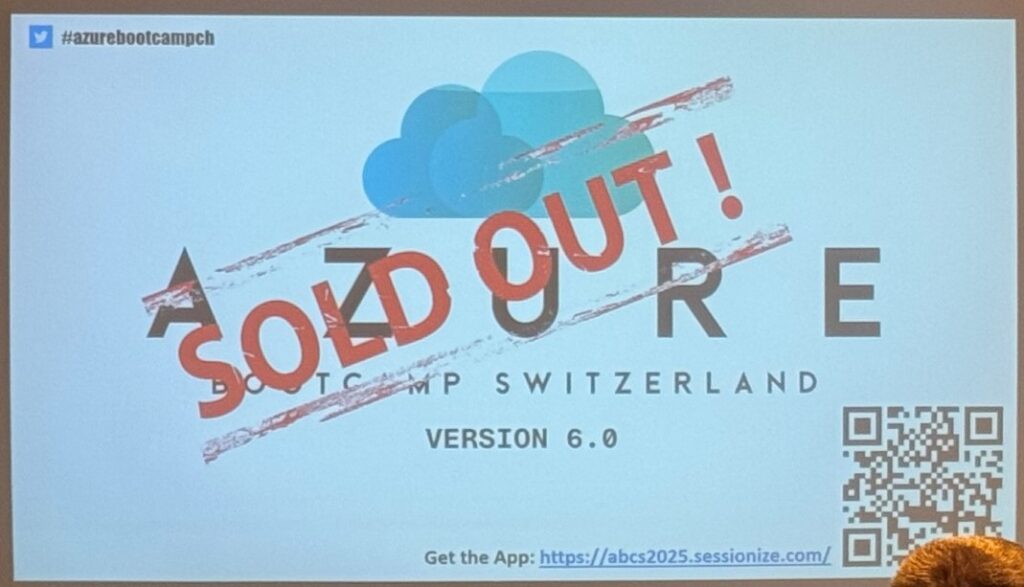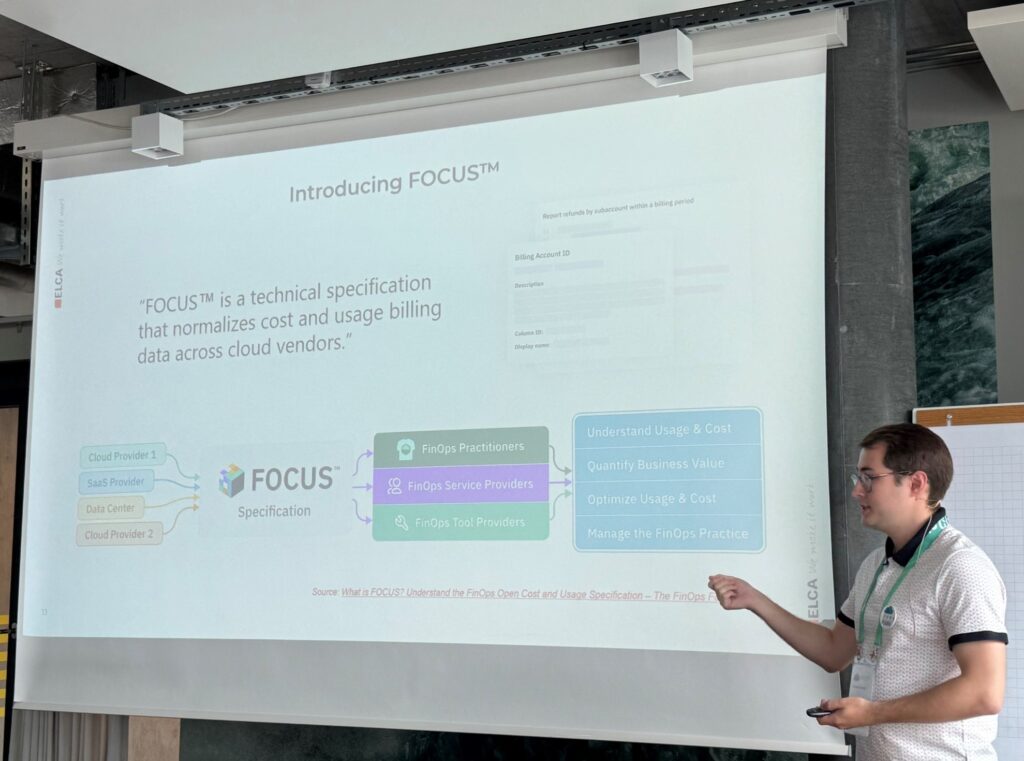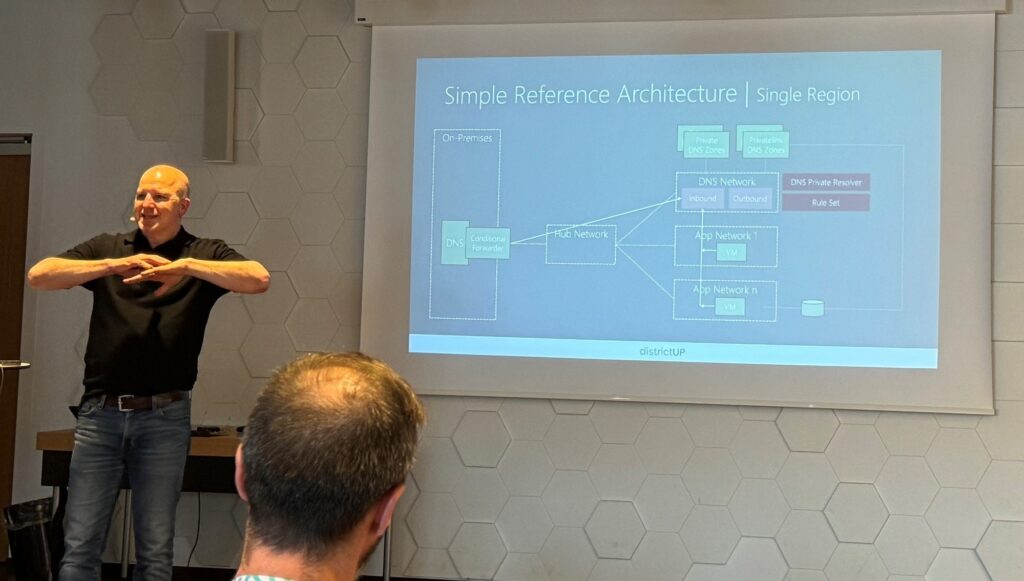
Last week I attended the Azure Bootcamp Switzerland 2025 with my colleague Adrien from the Cloud team. It was the 1st time for us but it was already the 6th edition of the event. This is a community event and non-profit event on an obvious topic: Azure
It’s a quite intensive day, 2 keynotes and 15 presentations split in 3 different streams. We took the ticket some ago and I was quite surprised by the amount of people interested in Azure topics. Indeed, just before the keynote, they announced the event was sold out. I know already the location since it’s at the same place than the Data Community Conference I participated last year.
Since we were two people at the event, we were able to split in the different streams. I followed sessions on really different topics: building AI application for Swiss government, Building Data platform, FinOps, Platform engineering with Terraform and DNS for hybrid environments.
All presentations were interesting but I’ll bring the focus on 2 of them: Cost observability with new FinOps standard FOCUS and DNS in hybrid environments because I think these 2 topics are really in important in the current deployments. The 1st one is quite obvious, you should not go to public Cloud without monitoring your costs. And the 2nd one, in my opinion, many companies are deploying Cloud but still have on-premise workload and it’s important to know how to live in this hybrid world.
Level up your Cost Observability with the new FinOps standard FOCUS and Microsoft Fabric

We discussed this FinOps topic already within the Cloud team at dbi services. But we may have overlooked the FOCUS specification by trying to create our own mapping in the different Cloud cost usage exports. The public Cloud providers are not strictly following the specification and there are some tips in the slides. Using Fabrics is then a good example on how the cost data can be processed.
DNS in hybrid cloud environments – can it be that hard?

On DNS side, the main take-away of this presentation is to correctly plan your DNS needs. In most cases, you will not use fixed IPs when you work with public Cloud. Usually, IPs are provided automatically when network interfaces are created. Then DNS is a critical component to ensure a good communication between all your instances/services. The DNS should be part of your network design from the beginning to ease the management of the DNS and avoid DNS private zones scattered at different places.
![Thumbnail [60x60]](https://www.dbi-services.com/blog/wp-content/uploads/2022/11/NIJ-min-scaled.jpg)
![Thumbnail [90x90]](https://www.dbi-services.com/blog/wp-content/uploads/2022/08/ADE_WEB-min-scaled.jpg)
![Thumbnail [90x90]](https://www.dbi-services.com/blog/wp-content/uploads/2022/08/JEW_web-min-scaled.jpg)
![Thumbnail [90x90]](https://www.dbi-services.com/blog/wp-content/uploads/2024/03/AHI_web.jpg)